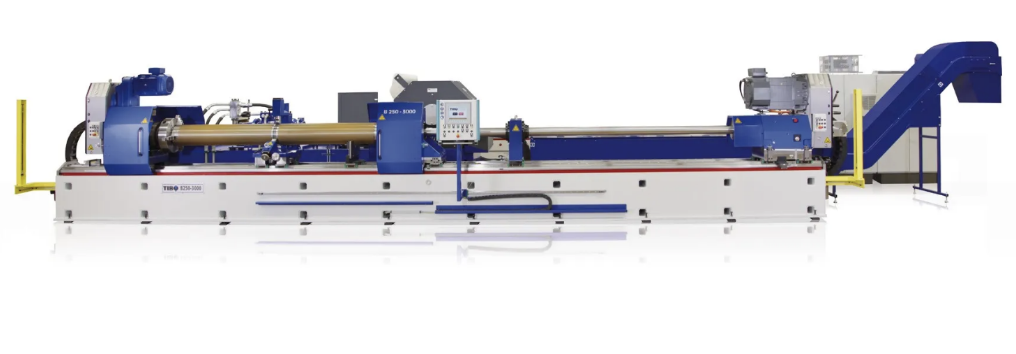
Deep hole boring is a machining process in which holes are drilled with a depth to diameter ratio in excess of 100:1. The process is used to create bores in a range of materials, from aermet to aluminium to superalloys, and has applications in a variety of industries, including:

- Oil and gas production
- Hydraulics
- Aerospace and defence
- Mold making
- Heavy industry
At Hone-All, our deep hole boring services utilise cutting-edge technology to achieve exceptional precision and close tolerances. With decades of experience in the field, we deliver outstanding results for applications in any field of industry which requires precision bores greater than 20mm in diameter.
Information/Parameters We Need To Quote For Deep Hole Boring
- The Material Specification – this is essential to ensure accurate quoting as material properties differ, as do the speeds and feeds required to machine them efficiently.
- Outside Diameter – we need this to assess which machine the component can be held on as well as to ensure we have a suitable wall thickness to ensure the drilling process can be completed safely.
- Inside Diameter – this is required to ensure we have tooling available, as although we have a vast range in stock, certain materials such as Inconel, may require specialist tooling, as do blind bores with specific forms at the base.
- Overall Length – as with the first two, these are required for tooling and machine capacity decisions.
- The Bore Type – i.e., is it a through bore or blind bore? If it is a blind bore, is a specific form required such as a flat bottom or particular radius at the base? Standard deep hole boring leaves a shallow W shape at the bottom of the bore. Any other form can increase your unit cost due to either requiring bespoke drill heads or a process bore with a single point boring operation to create the form.
- The Depth Tolerance – if you require a blind bore, we need to know the tolerance required on the bore depth. As long as there is excess material on the length, we can “back-face” to achieve tighter tolerances on depths.
- The Bore Tolerance – bore tolerance is a major factor when quoting the deep hole drilling process. If the tolerance is below the industry standard of ±0,25mm, a honing process may be required.
- Any Surface Finish Requirement – in addition to the bore tolerance, this is needed to ascertain whether we have to add a honing operation. Industry standard for deep hole boring would be 3,2µ or 250 CLA.
- T.I.R. Or Straightness Requirements – we need to know these as even though we may be only carrying out an initial first or second stage process boring operation, we need to ensure there is sufficient material to be turned off to correct any drill wander. Industry standard for drill wander is 1mm per 1 metre or 0.001” per 1” drilled.
Why Hone-All Is Your First Choice For Deep Hole Boring
At Hone-All, we take pride in helping our customers achieve outstanding machining results at a cost-effective price. By investing in the latest deep hole boring technology and the professional development of our skilled engineers, we deliver precise and reliable results that accurately meet the needs of every project.
All our deep hole boring services are completed in-house at our advanced facility in Bedfordshire. With an unshakable commitment to achieving excellence in our machining, underpinned by our ISO 9001 and BS EN 9100 accreditations, Hone-All is the first choice for your deep hole boring needs.
Contact Us To Find Out More
To find out more about our deep hole boring services or to request a free quotation, please call 01525 370666 or contact us here.





